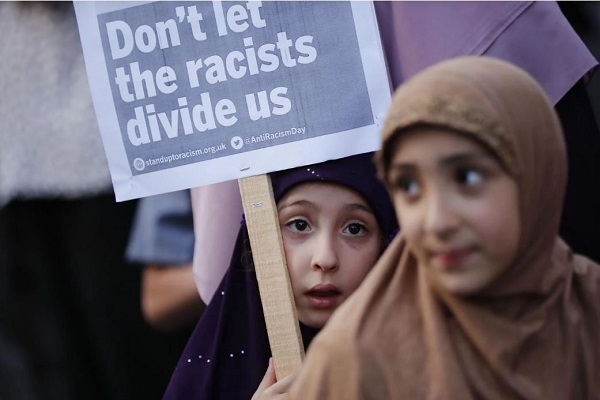'Sadly Not Suprising': Home Office Report Reveals Surge in Islamophobic Hate Crimes in England, Wales

With 3,866 cases reported in the year ending March 2024, Muslims are the most affected group. The data, released on Thursday, also shows a 25% increase in religious hate crimes compared to the previous year, marking the highest annual count since records began in 2012.
Far-right riots and a hostile political climate have contributed to the normalization of Islamophobia. This trend has been exacerbated by divisive political rhetoric that continues to stigmatize Muslim communities. The rise in attacks and discrimination highlights how deeply entrenched Islamophobia is within British society, the MCB noted in a Friday statement.
Responding to the latest data, MCB Secretary-General Zara Mohammed stated, “The spike in Islamophobic hate crime is, sadly, not surprising and reflects the increased hatred experienced by British Muslims.”
She added, “We have seen divisive political rhetoric that continues to stigmatize Muslim communities for political gain, alongside false news stories that incite far-right riots and Islamophobic attacks, showing just how deeply entrenched these issues are.”
Read More:
Mohammed also pointed out that most Islamophobic hate crimes go unreported, indicating that the data only highlights a small part of the issue and not its systemic nature.
The report also underscores structural Islamophobia across key institutions such as local authorities and government bodies, which further entrenches inequalities.
British Muslims face significant barriers in accessing healthcare, housing, and employment due to institutional biases, said the MCB, adding that this creates a hostile climate where Islamophobia is perpetuated not only through individual actions but also by the very systems meant to protect citizens.
The MCB urges the government to fulfill its duty to protect all communities from hatred, address the rise of far-right terror, and tackle institutional Islamophobia. This includes the full adoption of the APPG British Muslims’ definition of Islamophobia as a key first step.
“We continue to call for a comprehensive national strategy to tackle Islamophobia at all levels—ensuring accountability, implementing proper training for public bodies, and addressing the deep-rooted biases that permeate into our institutions,” noted the rights body.
Source: Agencies



